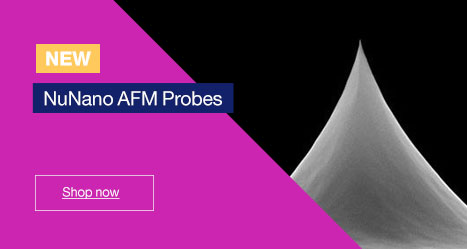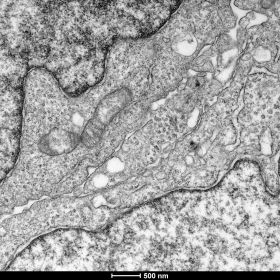Last year, Agar Scientific launched a new direct replacement for Uranyl Acetate – UA-Zero. In this post we describe the protocol for using UA-Zero for Tobacco Mosaic Virus (TMV) negative staining.
UA-Zero EM Stain is a patented solution developed as a direct replacement for Uranyl Acetate. UA-Zero does not contain any radioactive material and is non-toxic. UA-Zero can be used as a direct substitute for Uranyl Acetate with no changes to standard user protocols.
UA-Zero is supplied in an opaque dropper bottle, which should be stored long-term in the lab fridge at around 4°C. For daily use, the sealed bottle can be stored in normal laboratory conditions away from direct sunlight.
It has been shown that UA-Zero EM stain works well for various protocols that specify Uranyl Acetate as a staining solution for TEM sample preparation in life science. This blog post describes one example of a protocol for preparing samples and subsequent imaging using TEM. Uranyl Acetate and UA-Zero were directly compared and the images generated are shown later on in this post.
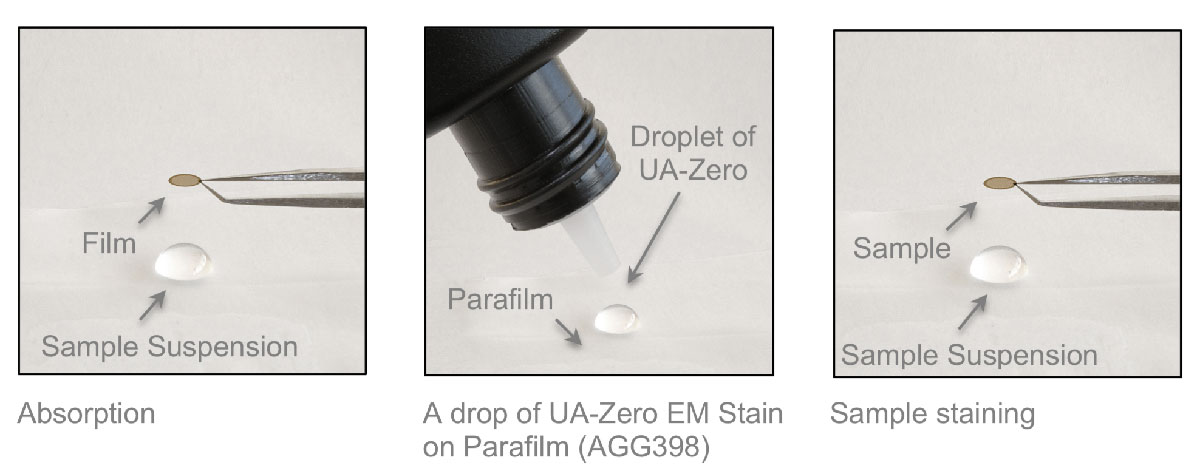
Staining the sample on a TEM grid, with a support film, requires just a few simple steps before drying.
Protocol used for TEM sample preparation
All steps performed at room temperature unless otherwise stated. Parts of the same sample have been stained using UA-Zero EM Stain and Uranyl Acetate, for direct comparison.
Suggested dilution for virus titre in solution between 1:20 and 1:100 for negative stain.
- From TMV stock, make 1:20 dilution on Phosphate-Buffered Saline (PBS)
- Incubate 20μl TMV solution on pioloform 300 mesh copper grids – 1 min
- Blot and allow to dry – 5 mins
- Staining: UA-Zero EM Stain in 20% ethanol OR 3% Uranyl Acetate in water – 1.5 mins
- Blot dry
TEM images of sample prepared using UA-Zero EM Stain in 20% ethanol as staining solution
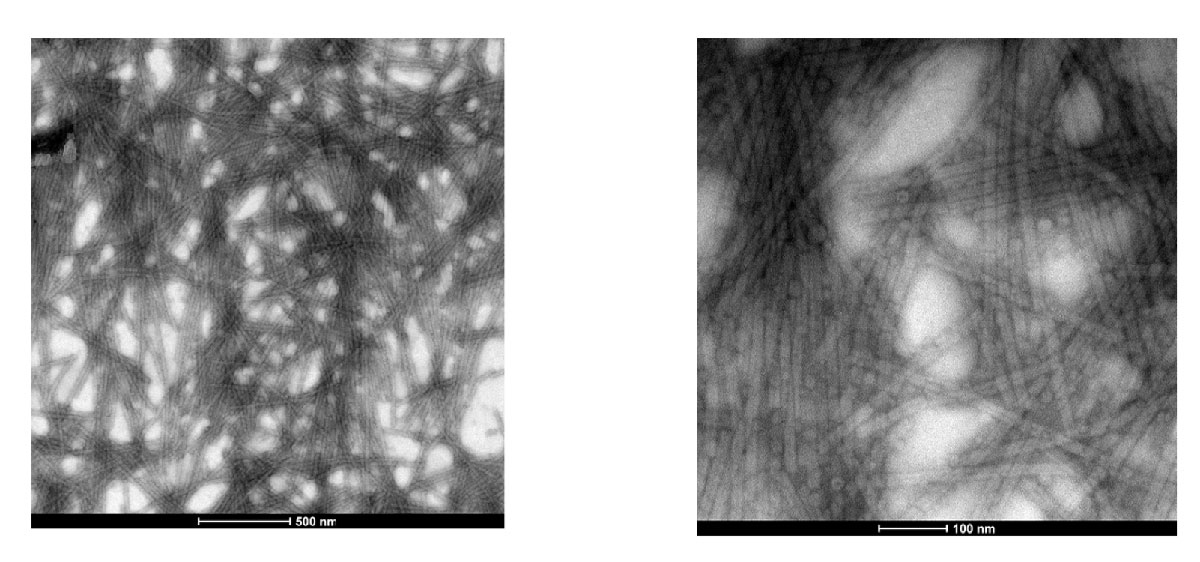
TEM images of sample prepared using 3% Uranyl Acetate in water as staining solution
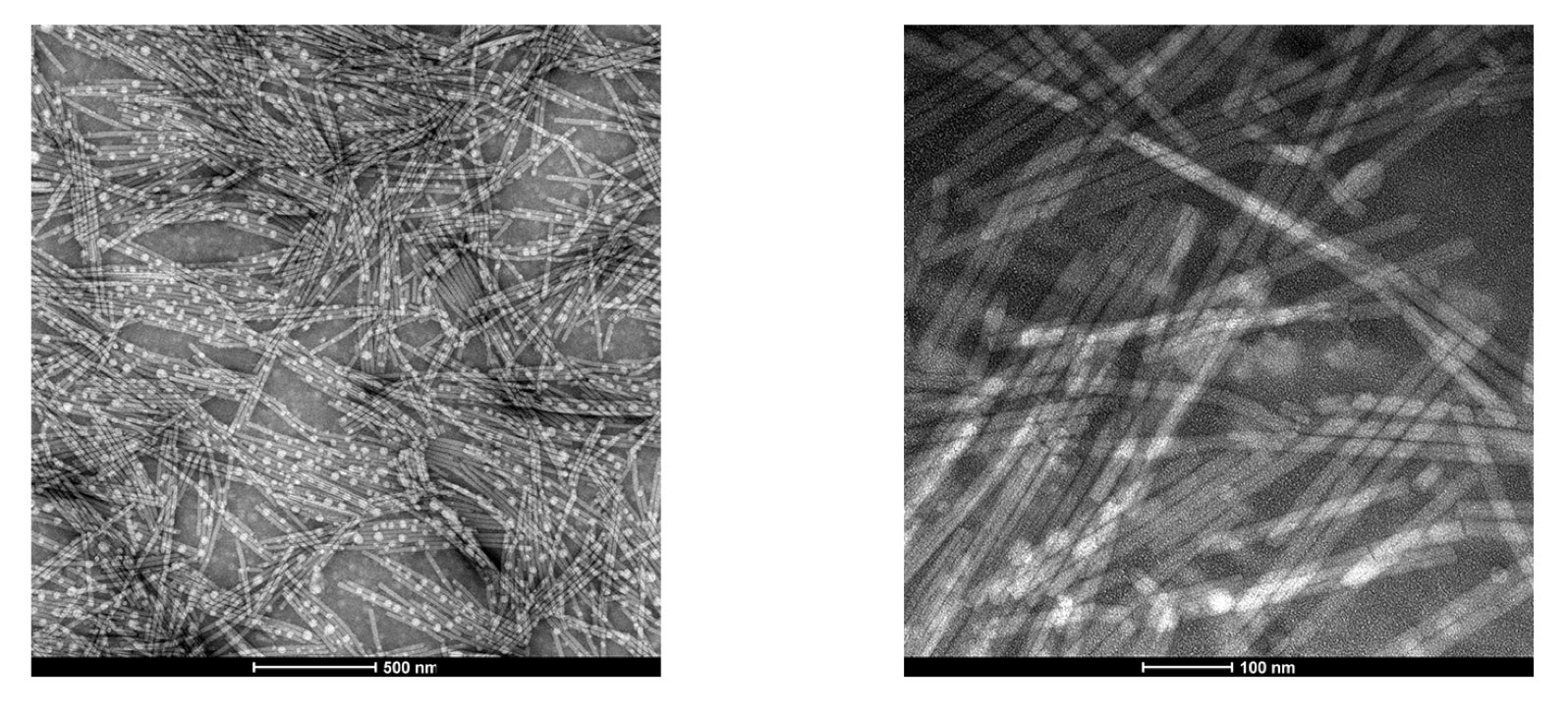
Samples prepared and imaged courtesy of Prof. Dr. Paul Verkade and Dr. Chris Neal, Wolfson Bioimaging Facility, School of Medical Sciences, University of Bristol.

